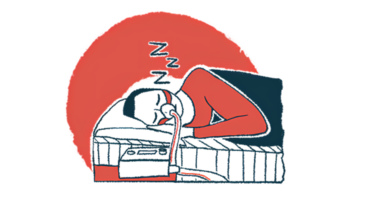Millendo Stops Livoletide Development for PWS After ZEPHYR Trial Misses Goals

Millendo Therapeutics‘ treatment candidate livoletide failed to significantly reduce hunger and improve food-related behaviors in people with Prader-Willi syndrome (PWS) who are taking part in the pivotal ZEPHYR Phase 2b/3 clinical trial.
Also, the treatment did not improve other measures, such as body fat, waist circumference, and body weight. As a result, the company announced it will discontinue livoletide’s development as a potential treatment for PWS.
“Unfortunately, treatment with livoletide did not significantly improve hyperphagia and food-related behaviors in our ZEPHYR study,” Julia C. Owens, Millendo’s president and CEO, said in a press release.
“While we are disappointed in these results, I want to recognize our team’s hard work and commitment in executing this robust study that informed the difficult decision to discontinue the livoletide PWS program,” Owens stated.
Livoletide is intended to treat extreme hunger and obsession with food (hyperphagia) experienced by PWS patients. It is an analog of unacylated ghrelin (UAG) that is intended to work by decreasing the amount of the active form of ghrelin, the “hunger hormone,” in the brain.
The therapy showed promise in a prior Phase 2a trial, in which daily treatment with livoletide for two weeks was significantly better than a placebo at lowering hunger and improving food-related behaviors in adolescents and adults with PWS.
ZEPHYR (NCT03790865) was a two-part trial designed to confirm the findings.
Its Phase 2b part included 158 patients, ages 4–65, who were assigned randomly to one of two livoletide doses (60 µg/kg or 120 µg/kg), or placebo. Treatment was given via a subcutaneous (under-the-skin) injection, daily for 12 weeks.
Topline data from this part of the trial has shown that it failed to meet its primary goal — a significant change in Hyperphagia Questionnaire for Clinical Trials (HQ-CT), which measures hunger and food-related behaviors, compared with placebo. Secondary goals also were not met.
After the three-month treatment period, patients on placebo had experienced a 2.8 reduction in their hunger and food-related behaviors scores, compared with a 4.7 point reduction for those on the lowest dose of livoletide and a 3.8 point reduction on the highest dose. While the data suggested a benefit from livoletide, if failed to reach statistical significance.
The treatment was overall well-tolerated, with the most common adverse event being reactions at the injection site, which were mostly mild in severity. Two patients discontinued livoletide and four reported serious side effects, none of which was related to the therapy.
Full data from ZEPHYR’s Phase 2b part will be presented at an upcoming medical conference or published in a peer-reviewed journal, Owens said.
The Phase 3 part of ZEPHYR was intended to test the benefits of livoletide compared to a placebo for a period of six months, but given the negative results in the Phase 2b part, the company has decided to stop the trial and its nine-month extension study.
“We are deeply grateful to the patients, caregivers and researchers who made the ZEPHYR study possible,” Owens said.
Millendo recently hosted a webcast to discuss ZEPHYR’s results. A replay is available here.
The company now will focus on its programs in congenital adrenal hyperplasia and menopausal vasomotor symptoms.






